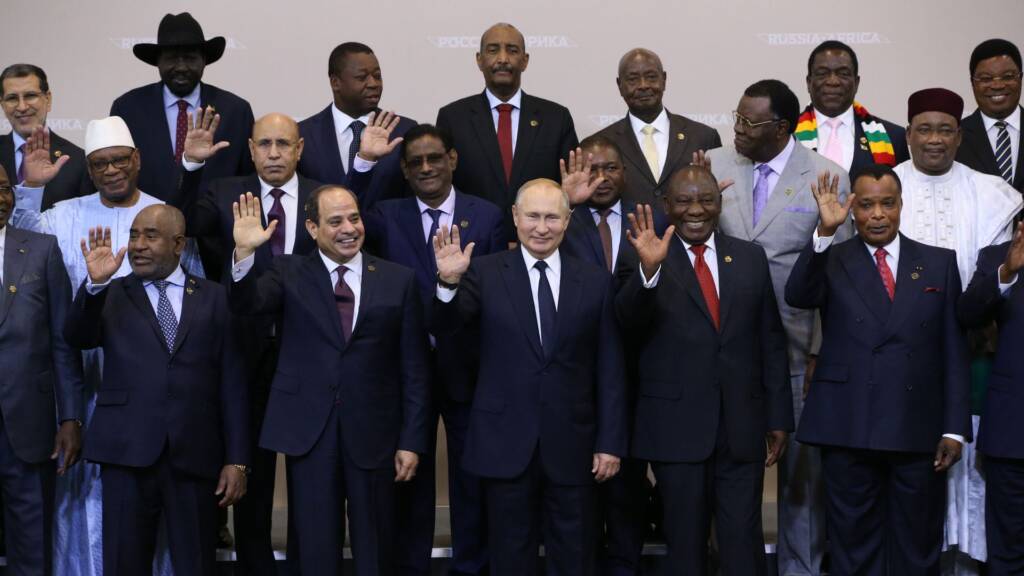Moscow is set to host a major international security meeting, drawing representatives from over 40 African nations in a strategic dialogue aimed at enhancing security cooperation and addressing pressing geopolitical issues. The gathering signals a deepening of ties between Russia and Africa amid a shifting global order.
The meeting, organized under the auspices of Russia’s Ministry of Defense and Ministry of Foreign Affairs, is expected to focus on counterterrorism, arms trafficking, cybersecurity, and multilateral military cooperation. It will also provide a platform for African leaders and defense officials to explore new avenues for defense procurement and joint training initiatives.
This high-level engagement follows a series of recent summits between Russia and African states, highlighting Moscow’s growing role as a strategic partner on the continent. The Kremlin has increasingly positioned itself as an alternative to traditional Western partners, offering military support, political backing, and energy cooperation without the governance conditions often attached to Western aid.
Why African Leaders Are Looking East?
Many African leaders are turning to Russia in response to longstanding frustrations with Western engagement. While Western nations have historically provided development aid, security assistance, and investment, these often come with conditions related to governance reforms, human rights benchmarks, and economic liberalization. For governments facing urgent security threats or internal instability, such stipulations are frequently seen as obstacles rather than solutions.
In contrast, Russia promotes what it calls a “non-interference” approach, prioritizing mutual respect for sovereignty and political independence. This approach has found a receptive audience among leaders who feel their countries have been patronized or pressured by Western powers. Additionally, the perception that Western involvement has failed to bring lasting stability to regions like the Sahel or Libya has fueled skepticism about traditional partnerships.
Russia’s willingness to supply arms, military advisers, and political support—often without public scrutiny or conditionality—makes it an attractive partner for countries in crisis. Furthermore, the global rebalancing of power and the rise of multipolar diplomacy are encouraging many African nations to diversify their foreign relations.
Global Impact of these Moves
Africa’s move toward closer security ties with Russia may mark a significant realignment in global geopolitics. As African nations gain greater agency in choosing partners that align with their national interests, traditional Western influence, especially from former colonial powers, is being challenged.
For the West, this development presents both a strategic and moral dilemma. On one hand, losing ground to Russia in Africa could weaken the West’s ability to shape security dynamics, counter extremism, and protect trade routes. On the other hand, partnerships with Russia may embolden regimes accused of human rights abuses or democratic backsliding, raising concerns about global norms and accountability.
Meanwhile, China already deeply embedded in Africa economically is likely to watch these moves closely. If Russia solidifies its role as Africa’s go-to security partner, China may recalibrate its strategy to maintain its economic dominance on the continent.
The meeting also highlights the fragmentation of international alliances. As the global order shifts from a unipolar to a multipolar system, forums like the Moscow summit underscore the growing desire among African countries to assert independence and pursue foreign policies that reflect their priorities rather than those of external powers.
A Strategic Moment
With regional conflicts in the Sahel, the Horn of Africa, and Central Africa continuing to destabilize communities, African governments are increasingly seeking pragmatic, results-oriented partnerships. The Moscow summit offers a timely forum to strengthen these relationships and redefine Africa’s role in the evolving global security architecture.
While the meeting is primarily focused on defense and security, its outcomes are expected to reverberate across diplomatic, economic, and geopolitical spheres—potentially setting the tone for a new era in Africa–Russia relations and reshaping global alliances in the process.
The summit is scheduled to take place later this month, with closed-door sessions and bilateral talks expected alongside the main plenaries.
